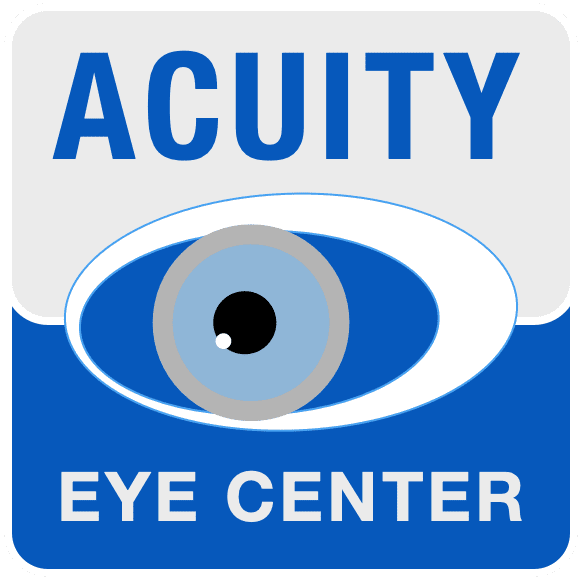Twitching of Eyelids #
Eye twitching, eyelid tics and spasms are pretty common. Usually, only the lower eyelid of one eye is involved, but the upper eyelid also can twitch. Most eye twitches come and go, but sometimes a twitching eye can last for weeks or even months.
I once received an e-mail from a patient’s wife, who told me her left lower eyelid had been twitching for several weeks and it was driving her crazy. Could I help?
To find a solution for a twitching eye, we first need to determine the underlying cause of this annoying problem. Called “myokymia” in doctor lingo, these rippling muscle contractions in an eyelid can be triggered by:
- Stress
- Tiredness
- Eye strain
- Caffeine
- Alcohol
- Dry eyes
- Nutritional imbalances
- Allergies
Almost all sudden-onset eyelid twitching is benign, meaning the condition is not serious or a sign of a medical problem.
Common eye twitching is unrelated to neurological conditions affecting the eyelid, such as blepharospasm or hemifacial spasm. These conditions are much less common and should be diagnosed and treated by an eye doctor.
Usually, a few lifestyle-related questions can help determine the likely cause of eye twitching and the best way to get it to stop.
![]()
When your eyelid is twitching, you may feel that everyone else can see it, as in this animation that exaggerates the movement. But most eyelid twitches are subtle and not easily seen by others.
Why Does My Eye Twitch? #
Stress. While we’re all under stress at times, our bodies react in different ways. A twitching eye can be one sign of stress, especially when it is related to vision problems such as eye strain (see below).
Yoga, breathing exercises, spending time with friends or pets and getting more down time into your schedule are among the many ways to reduce stress that may be causing the twitch.
Tiredness. A lack of sleep, whether because of stress or some other reason, can trigger a twitching eyelid. Catching up on your sleep can help.
Eye strain. Vision-related stress can occur if, for instance, you need glasses or a change of glasses. Even minor vision problems can make your eyes work too hard, triggering eyelid twitching. Schedule an eye exam and have your vision checked and your eyeglass prescription updated.
Computer eye strain from overuse of computers, tablets and smartphones also is a common cause of eyelid twitching. Follow the “20-20-20 rule” when using digital devices: Every 20 minutes, look away from your screen and allow your eyes to focus on a distant object (at least 20 feet away) for 20 seconds or longer. This reduces eye muscle fatigue that may trigger eyelid twitching.
If you spend a lot of time on the computer, you might want to talk to your eye doctor about special computer eyeglasses.
Caffeine. Too much caffeine can trigger eye twitching. Try cutting back on coffee, tea, chocolate and soft drinks (or switch to decaffeinated versions) for a week or two and see if your eye twitching disappears.
Alcohol. Try abstaining for a while, since alcohol also can cause eyelids to twitch.
Dry eyes. Many adults experience dry eyes, especially after age 50. Dry eyes are also very common among people who use computers, take certain medications (antihistamines, antidepressants, etc.), wear contact lenses and consume caffeine and/or alcohol. If you are tired and under stress, this too can increase your risk of dry eyes.
If you have a twitching eyelid and your eyes feel gritty or dry, see your eye doctor for a dry eye evaluation. Restoring moisture to the surface of your eye may stop the spasm and decrease the risk of twitching in the future.
Nutritional imbalances. Some reports suggest a lack of certain nutritional substances, such as magnesium, can trigger eyelid spasms. Although these reports are not conclusive, I can’t rule this out as a possible cause of a twitching eye.
If you are concerned that your diet may not be supplying all the nutrients you need, I suggest talking this over with your family doctor for expert advice rather than randomly buying over-the-counter nutritional products.
Allergies. People with eye allergies can have itching, swelling and watery eyes. When eyes are rubbed, this releases histamine into the lid tissues and the tears. This is significant, because some evidence indicates that histamine can cause eyelid twitching.
To offset this problem, some eye doctors have recommended antihistamine eye drops or tablets to help some eyelid twitches. But remember that antihistamines also can cause dry eyes. It’s best to work with your eye doctor to make sure you’re doing the right thing for your eyes.
More Remedies For A Twitching Eye #
In rare cases, some eye twitching just won’t go away, despite applying the remedies above.
Sometimes these persistent twitches can be treated with Botox injections that help stop muscle contractions. Also, see your eye doctor immediately if the twitching or abnormal movements affect half of your face as well as your eyelid, or if both eyelids clamp down tight so it’s impossible to open your eyes. These can be signs of a serious condition.

A Happy Ending #
So, what caused my patient’s wife to have eyelid twitching? The problem turned out to be a combination of dry eyes and an incorrect contact lens prescription.
Luckily, I was able to solve her annoying problem by prescribing new bifocal contacts made of a material designed specifically for people with dry eyes.





